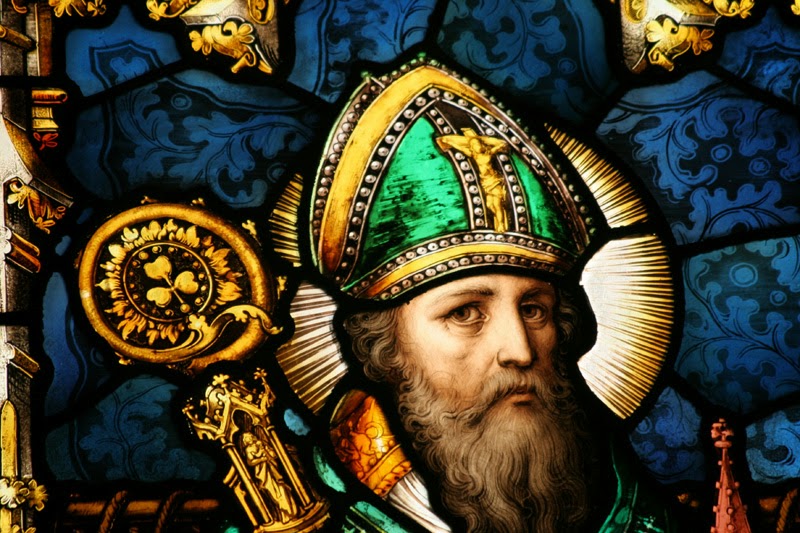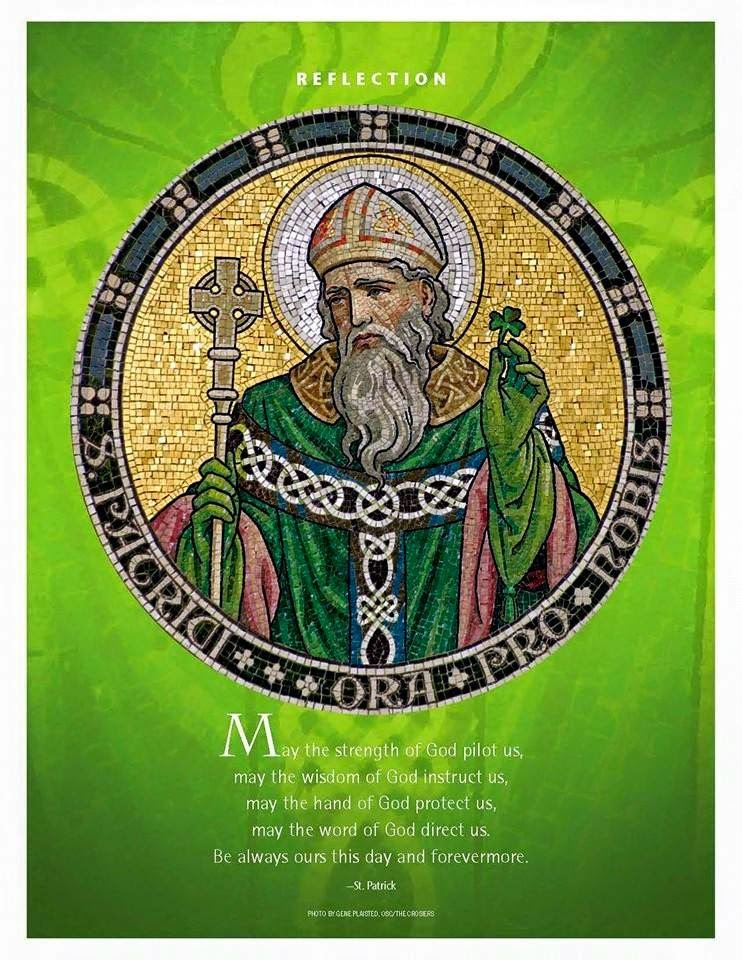God of Slaves
Lenten Vespers, Week Four
Exodus 21: Free the Slave
When you buy a male
Hebrew slave, he shall serve six years, but in the seventh he shall go out a
free person, without debt. If
he comes in single, he shall go out single; if he comes in married, then his
wife shall go out with him.
Deuteronomy 5: You Were Slaves
Remember that you were
a slave in the land of Egypt, and the Lord your God brought you out from
there with a mighty hand and an outstretched arm.
Matthew 5: Love Your Enemy
You have heard that it
was said, “An eye for an eye and a tooth for a tooth.” But I say to you,
Do not resist an evildoer. But if anyone strikes you on the right cheek, turn
the other also; and if anyone wants to sue you and take your coat, give
your cloak as well; and if anyone forces you to go one mile, go also the
second mile. Give to everyone who begs from you, and do not refuse anyone
who wants to borrow from you. You
have heard that it was said, “You shall love your neighbor and hate your
enemy.” But I say to you, Love your enemies and pray for those who
persecute you, so that you may be children of your Father in heaven; for
he makes his sun rise on the evil and on the good, and sends rain on the
righteous and on the unrighteous. For if you love those who love you, what
reward do you have? Do not even the tax-collectors do the same? And if you
greet only your brothers and sisters, what more are you doing than others?
Do not even the Gentiles do the same? Be perfect, therefore, as your
heavenly Father is perfect.
Homily:
Grace, mercy and peace to you from God our Father and from
our Lord and Savior Jesus Christ. AMEN.
St. Patrick was Welsh, not Irish. And, as we are often
reminded, St. Patrick’s Day isn’t even all that big a deal in Ireland. Then
again, the Irish-American population is seven times the size of Ireland’s own,
so perhaps they might consider following our lead on this one.
St. Patrick’s Day came to be celebrated in America first as
a political movement, then as an ethnic festival, and finally as yet another
drunken bacchanal. More’s the pity, given how wonderful the story of St.
Patrick truly is. In previous years I’ve preached upon both his writings and
his miracles, but this time around I think we ought to address the elephant in
the room: slavery.
St. Patrick was a slave. He began life as a wealthy young
man, a Romanized Celt living in Britannia. The name Patrick, after all, derives
from “patrician.” He was seized in his youth by Irish pirates who sold him into
slavery to a man named Miliuc. After six years of suffering—mostly spent in lonely
isolation and exposure to the elements as he shepherded Miliuc’s sheep—Patrick received
a vision from God leading him to freedom. After a truly miraculous journey both
by land and by sea, Patrick escaped to Europe, was reunited with his family,
and became a priest.
Then came a second vision: that of an Irishman crying out
for Patrick’s help. And so Patrick returned to the Isle of his enslavement in
order to preach a Gospel of forgiveness, mercy, and liberation to the very
people who had torn from him his youth. He met with great resistance, but also
with great success. And ever his concern was for the poorest and lowliest of
all: his fellow slaves. I find it particularly significant that Patrick is said
to have converted a certain Pictish slave to Christ, a woman who would later
give birth to St. Brigid—arguably the only Irish saint more influential and
beloved than Patrick himself.
Christianity flourished in Ireland, not by the sword but by
the Word of God. Pagan druids eagerly became Christian monks and nuns. The dark
gods were driven out, as we commemorate in the legend of Patrick casting out
the snakes. When the Dark Ages fell upon the Continent, Ireland kept the light
of the Gospel, and of education more generally, burning brightly for the world
to see. Irish missionaries brought Christ to the kings and queens of Europe,
who had largely been baptized without knowing what all Christian baptism
entails. Thus from the chaos of collapse rose the glories of the High Middle
Ages of the West.
All of this—the salvation of our very civilization—because one
slave went free, and returned to show love and compassion to his former
masters. We should all be humbled by this. We should all be thankful for this.
We should all take a lesson from this, from the mysterious workings of the God
Who loves slaves.
Slavery is a very thorny issue in the Bible. On the one
hand, slavery seems, at least on paper, to be accepted in both the Old and New
Testaments. People, we read, may be bought and sold. Yet is this not in direct
contradiction to the underlying spirit of the Ten Commandments, which rail
against treating people as if they were things and loving things as if they
were people? Does slavery not fly in the face of the Exodus, the foundational
story of God’s own people, who were slaves of Egypt, the mightiest nation the
world had yet known? The entire story of the Bible is one of God liberating the
enslaved: those in bondage to masters, in bondage to nations, in bondage to
sin, in bondage to death.
Slavery, believe it or not, began as a form of mercy. When
one ancient army defeated another, enemy soldiers could be protected, conserved—conservare in Latin, from which we get
the word “servant.” Better to take them in than to kill them all. Biblical
slavery forbids the mistreating of servants, physically, sexually, or
otherwise. Slaves are to have their families cared for, and are to have the
same standard of living as their master. God mandates rest for the slave, and,
crucially, that slaves be manumitted every seventh year, without debt and
financially secure. Slaves in the Bible may also own their own property and buy
their own freedom. So, not a great system, but certainly better than slavery as
it developed in the Americas.
Slavery has existed in every society on earth throughout the
wide span of history. Before industrialization, manpower was of immense value.
Yet the only movements to abolish slavery have come from the Bible: from
Christians and from Jews. Yes, the Bible has been used to justify owning other
human beings. But it has also proven the only basis for liberating them. It was
Judeo-Christian principle that produced the Enlightenment’s Rights of Man. It
was British evangelists who ended the international slave trade. It was New
England Protestants who burned with abolitionist furor before and during the
Civil War. Was not the Kingdom of Judah, they reminded us, destroyed by God for
their refusal to manumit their poor slaves?
It cannot be doubted that God’s will is for all men to be
free. Yet it cannot be denied that it took us a very long time to come to this
conclusion, and fully to enact it. Would it not be better, we wonder, for God
simply to unveil the entirety of His plans for us right up front, to be clear
and forceful in His will? Surely that’s how we would act, were we God. Of
course, Moses tried that very tact with Pharaoh, to no avail.
But God is patient and merciful, slow to anger and abounding
in steadfast love. His plans unfold over eons; His promises are steadfast
across generations. Oftentimes we wonder why God waits so long to act, when He
wonders the same about us. The Bible takes the world as it is, not imposing
external authority but revealing the hidden and underlying meaning already
present, if obscured, within a fallen Creation. Truth must be revealed, not
imposed. It takes time to coax barbarians into civilization. It takes time to
prepare a violent world for a Prince of Peace, Who is willing to die—even die
on a Cross—merely for slaves. And, bafflingly, for the slave owners as well.
On this commemoration of all that Christ has done through
the life and ministry of St. Patrick, let us remember the poor, the oppressed,
the victimized; those people who are treated as things, treated as property,
treated as subhuman. Remember that we were all slaves once—slaves to Egypt,
slaves to our egos, slaves to sin and death and hell—and the Lord our God
brought us out with a mighty hand and an outstretched arm, shattering those who
would stand as our fetters.
The God Who cares for slaves will not forget His people, and
He will come to set them free. On that day may we be counted with those through
whom God works to bring the liberation of the Gospel—to Israel, to Ireland, and
to all the peoples of the world.
In the Name of the Father and of the +Son and of the Holy
Spirit. Amen.



Sjoestedt's "Celtic Gods and Heroes" and Elis' "The Celts: A History" document how the Irish conversion to Christianity came not just from the slaves below but from the druids above. The traditional priests of Ireland were eager for new learning and a new God. Joyce's "Celtic Christianity" reminds us that the Catholicism willingly adopted and adapted by the Irish could help us to revitalize our spirituality today.
ReplyDelete